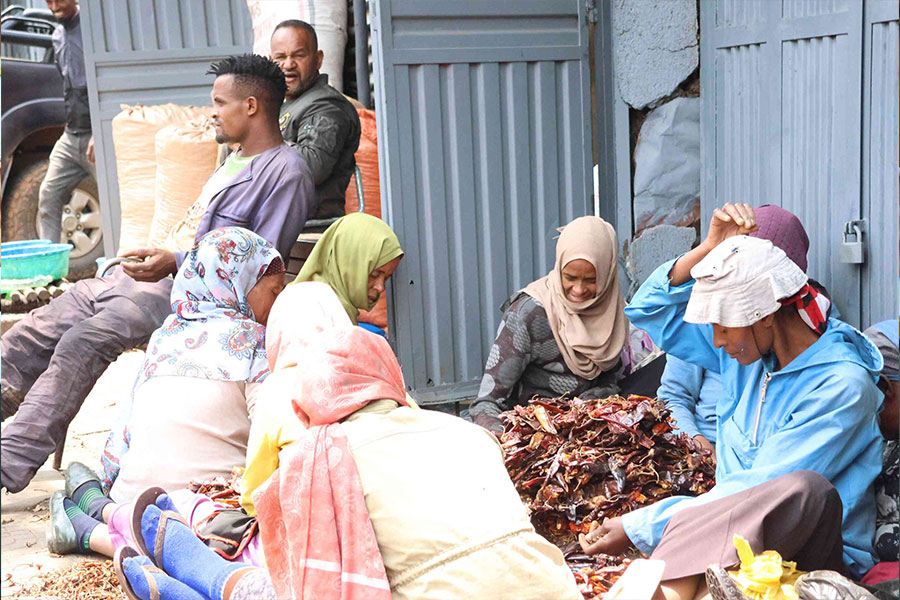
In-Picture | Jul 08,2024
The credit rating industry, long a subject of both influence and controversy, has drawn government officials and experts from across the African continent together to discuss its impact.
A recent UNDP report underlined 74.5 billion dollars in financial and development costs incurred by African countries due to subjective ratings. The lack of transparency in the rating processes used by credit rating agencies, which favour developed nations, has resulted in a considerable funding gap for African infrastructure projects.
Jacob Assa, senior economist at UNDP Africa, criticized the subjective nature of credit ratings, pointing out that the criteria used to upgrade or downgrade countries are often inexplicable. While acknowledging the capacity limitations of African countries, he emphasized that rating agencies have the power to be more considerate.
"Countries just need to prepare better," he said.
Representatives from various African countries, including Kenya, Tanzania, Uganda, Ghana, and Ethiopia, gathered in Addis Abeba to assess the opportunities and challenges presented by the current credit rating system.
Dominated by giants like Moody's, Standard & Poor's, and Fitch, credit rating agencies have faced scrutiny and controversy from researchers and officials from African countries.
The considerable rise of Eurobond issuance on the African continent has made credit rating agencies (CRAs) critical figures, with an 80pc rise in interest payments over the last decade. The report also outlined that 40pc of the total debt owed by Eastern African nations is to private-sector creditors.
Jacob pointed out "inherent subjectivity in the current global credit rating system," which many agree often results in African countries receiving lower ratings than warranted.
The UNDP report revealed that a total of 75 billion dollars could be saved if these agencies produced less subjective ratings for the continent. To improve the objectivity and transparency of credit ratings, Jacob recommended establishing regulators to oversee credit rating agencies and encouraging them to establish country offices within Africa.
Currently, there are only three international credit rating agency offices on the continent, all located in South Africa. Credit ratings are based on factors such as GDP growth per capita, foreign debt, reserves, governance, inflation, and security risk. Ethiopia, for instance, while facing challenges like political instability and border disputes, has maintained sustainable debt levels and a low percentage of its population living below the poverty line.
A closer examination reveals a mixed picture. On the one hand, the country boasts sustainable debt levels, a relatively low debt service ratio, and improved access to electricity. These indicators suggest a degree of economic stability and progress. However, Ethiopia's human development index remains below the sub-Saharan average, stressing substantial development gaps.
The recent downgrade by Fitch Ratings, coupled with its failure to make a coupon payment on its Eurobond, has raised serious concerns about its creditworthiness. While the evidence supporting the downgrade is substantial, the extent of the demotion and the delays in rebounding have prompted questions about the objectivity and fairness of the credit rating process.
The case of the Democratic Republic of the Congo (DRC) underscores the potential for credit ratings to be influenced by factors beyond economic fundamentals. Despite experiencing improvements in its debt-to-GDP ratio and political stability, the DRC has yet to see its credit rating updated by Moody's.
While the proposal for an African credit rating agency has been met with mixed reactions, Jean-Marc Kilolo, an economist at the UN Economic Commission for Africa (UNECA), maintains that such an agency could play a crucial role in enhancing the continent's economic resilience and self-sufficiency.
He argues that a continental credit rating agency could help reduce Africa's vulnerability to external shocks by providing a more nuanced and context-specific assessment of African economies.
However, experts have raised concerns about the historical effectiveness of such agencies. Jacob, a prominent economist, points to the limited credibility of a similar continental agency established in Europe as evidence that such initiatives may have minimal impact.
Daniel Tilahun, a senior economist at the Ministry of Finance, has criticised credit rating agencies for their harsh treatment of Ethiopia during its debt restructuring process. He argued that CRAs have unfairly viewed the process as a default, leading to downgrades that have further hindered the country's economic prospects.
He emphasized the continental consensus that credit rating agencies often exhibit bias, particularly when assessing African economies. Despite the challenges faced by Ethiopia, he expressed optimism that the country's debt restructuring efforts under the International Monetary Fund (IMF) program would eventually lead to improved credit ratings.
Ethiopia continues to face a debt burden of 28 billion dollars. Persistent challenges, including a depleted foreign currency reserve stock, stagnating exports, poor foreign direct investment (FDI) performance, and the aftermath of a two-year conflict, have further exacerbated the country's economic difficulties.
Daniel acknowledged the notable hurdles that lie ahead and warned that it would take considerable time for Ethiopia to overcome these challenges and achieve a more sustainable economic path.
PUBLISHED ON
Sep 08,2024 [ VOL
25 , NO
1271]

In-Picture | Jul 08,2024

Fortune News | Sep 03,2022

Viewpoints | Aug 27,2022

Viewpoints | Jun 15,2019

Agenda | Jul 06,2025

In-Picture | Oct 06,2024

Viewpoints | Aug 05,2023

Radar | Apr 24,2023

Viewpoints | May 31,2025

Radar | Jun 30,2024

Dec 22 , 2024 . By TIZITA SHEWAFERAW
Charged with transforming colossal state-owned enterprises into modern and competitiv...

Aug 18 , 2024 . By AKSAH ITALO
Although predictable Yonas Zerihun's job in the ride-hailing service is not immune to...

Jul 28 , 2024 . By TIZITA SHEWAFERAW
Unhabitual, perhaps too many, Samuel Gebreyohannes, 38, used to occasionally enjoy a couple of beers at breakfast. However, he recently swit...

Jul 13 , 2024 . By AKSAH ITALO
Investors who rely on tractors, trucks, and field vehicles for commuting, transporting commodities, and f...

Oct 25 , 2025
The regulatory machinery is on overdrive. In only two years, no fewer than 35 new pro...

Oct 18 , 2025
The political establishment, notably the ruling party and its top brass, has become p...

Oct 11 , 2025
Ladislas Farago, a roving Associated Press (AP) correspondent, arrived in Ethiopia in...

Oct 4 , 2025
Eyob Tekalegn (PhD) had been in the Governor's chair for only weeks when, on Septembe...